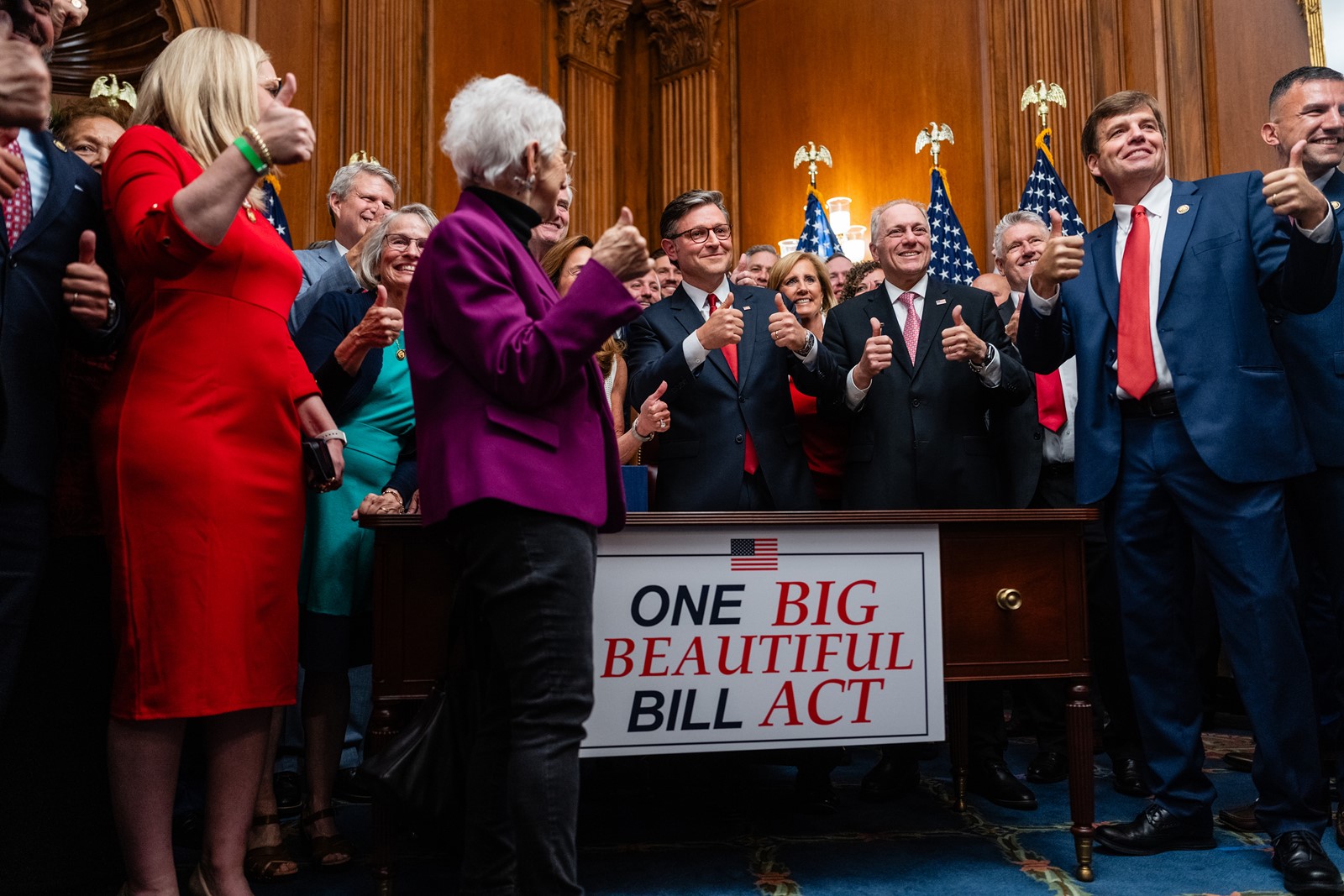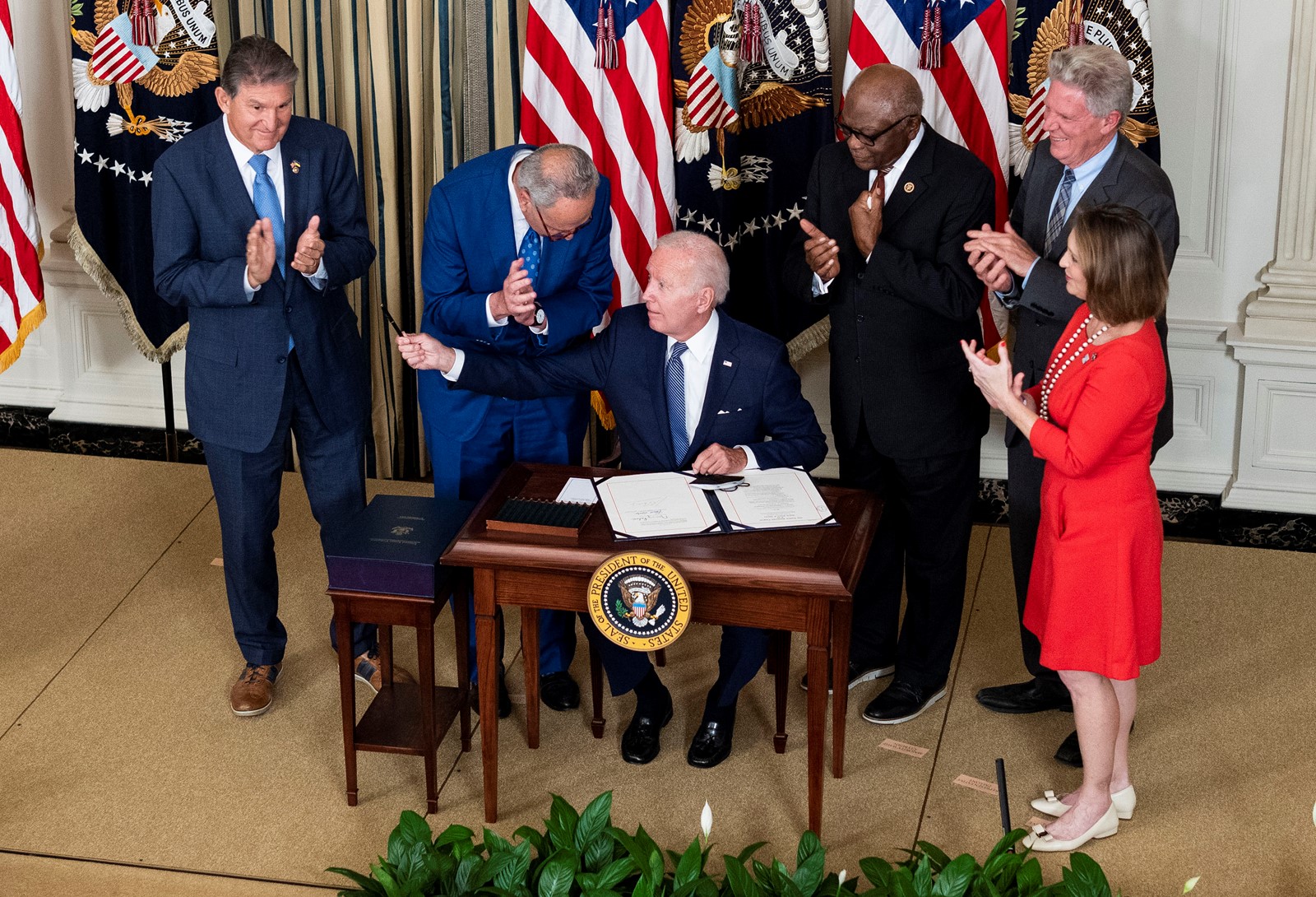

NEW YORK — With little public scrutiny, the Trump administration is handing out hundreds of billions of dollars in tax cuts to some of the country’s most profitable companies and wealthiest investors.
The Treasury Department and Internal Revenue Service, through a series of new notices and proposed regulations, are giving breaks to giant private equity firms, crypto companies, foreign real estate investors, insurance providers and a variety of multinational corporations.
The primary target: The administration is rapidly gutting a 2022 law intended to ensure that a sliver of the country’s most profitable corporations pay at least some federal income tax. The provision, the corporate alternative minimum tax, was passed by Democrats and signed into law by President Joe Biden. It sought to stop corporations like Microsoft, Amazon and Johnson & Johnson from being able to report big profits to shareholders yet low tax liabilities to the federal government. It was projected to raise $222 billion over a decade.
But the succession of notices the Treasury and IRS have issued means the tax could bring in a fraction of that.
These breaks come in addition to the roughly $4 trillion package of tax cuts that President Donald Trump signed into law in July. The legislation, passed entirely by Republicans, heavily benefits businesses and the ultrawealthy. It is projected to add trillions of dollars to the federal deficit and came with steep cuts to health care for the elderly and food stamps for the poorest Americans.
With its various tax relief provisions, the administration is now effectively adding hundreds of billions of dollars in new breaks for big businesses and investors. The Treasury is empowered to write rules to help the IRS carry out tax laws passed by Congress. But the aggressive actions of the Trump administration raise questions about whether it is exceeding its legal authority.
Trump and congressional Republicans have attacked federal workers as instruments of the “deep state,” exercising power beyond anything authorized by the law. Now the administration is doing the same thing, several tax experts said, undermining laws that hit the ultrawealthy and big companies.
“Treasury has clearly been enacting unlegislated tax cuts,” said Kyle Pomerleau, a tax economist at the American Enterprise Institute, a right-leaning think tank. “Congress determines tax law. Treasury undermines this constitutional principle when it asserts more authority over the structure of the tax code than Congress provides it.”
The alternative minimum tax isn’t the only effort to roll back taxes on large businesses and wealthy individuals. Last month, the Treasury and IRS granted new tax relief to foreign investors in U.S. real estate. In August, they withdrew regulations to prevent multinationals from avoiding taxes by claiming duplicate losses in multiple countries at once. And, as The New York Times previously reported, the Treasury and IRS have rolled back a crackdown on an aggressive tax shelter used by big companies, including Occidental Petroleum and AT&T. That amounts to another $100 billion in cuts — and likely far more, according to tax advisers.
Changes like these are not widely publicized by the Treasury, but are closely followed by tax planners for the country’s biggest corporations — who are applauding the new guidelines. In notes to clients, advisers at KPMG celebrated the new “array of choices” available for investors seeking to avoid the corporate alternative minimum tax. They noted that the Treasury’s moves provided “significant flexibility” for clients to trim their bills, allowing them to “cherry-pick” the rules that best suit their needs.
A Treasury spokesperson said the new moves were “a practical approach that supports American investment and competitiveness” and were meant to replace the Biden administration’s “compliance maze that would have buried taxpayers in red tape.”
The Treasury’s actions are probably contributing hundreds of billions of dollars to the federal deficit, tax experts said. That is on top of the trillions that the legislation signed by Trump in July is already adding to the deficit. Yet unlike laws passed by Congress, Treasury is under no obligation to publicly account for revenue lost by its actions — such as cutting spending to offset the money no longer being collected.
The actions by Treasury over the past few months are an accelerated version of what the agency did during the first Trump administration: Regulators killed off efforts to crack down on a lucrative estate tax avoidance strategy, and watered down new taxes on multinational companies in the 2017 Republican tax package.
Big companies effectively keep two sets of books — one for investors and another for the IRS. The profits they report to the IRS permit various deductions that can bring a firm’s tax rate far below the 21% corporate tax rate.
A holy grail of tax planning is figuring out a deduction that businesses can claim on their tax return — but one that they don’t report to investors, which would dent their profits, potentially hurt their stock price and thus depress compensation paid to executives. In 2021, the Biden administration was unable to get Congress to sign on to an international plan to tax multinational corporations. So the Democratic-led Congress revived an old idea to potentially achieve similar results by imposing a tax on the same profits that corporations report to their investors.
That alternative minimum tax was part of a 2022 domestic policy law called the Inflation Reduction Act. The new tax would apply to big corporations with an effective tax rate below 15%.
The One Big Beautiful Bill Act that Trump signed into law in July provided well over $1 trillion in relief for big companies when they calculate their income tax bills. But those breaks didn’t extend to the separate calculation that corporations must make for their alternative minimum tax bill. As a result, the regular tax bills of many businesses promise to drop so sharply — below 15% — that they could be newly subject to the alternative minimum tax.
The new law could have swept in two of the biggest crypto firms, Coinbase and Strategy. In response, they sought rule changes for calculating the minimum tax. Three high-powered legal advisers — Michael Desmond, who served as the IRS chief counsel in the first Trump administration; Andrew Strelka, formerly senior tax counsel in the Biden administration; and Eugene Scalia, the labor secretary in the first Trump administration — pushed to exempt “mark to market” gains reported to investors. Those gains reflect the increase in value of the investments held by companies that haven’t been sold yet.


 PREVIOUS ARTICLE
PREVIOUS ARTICLE
